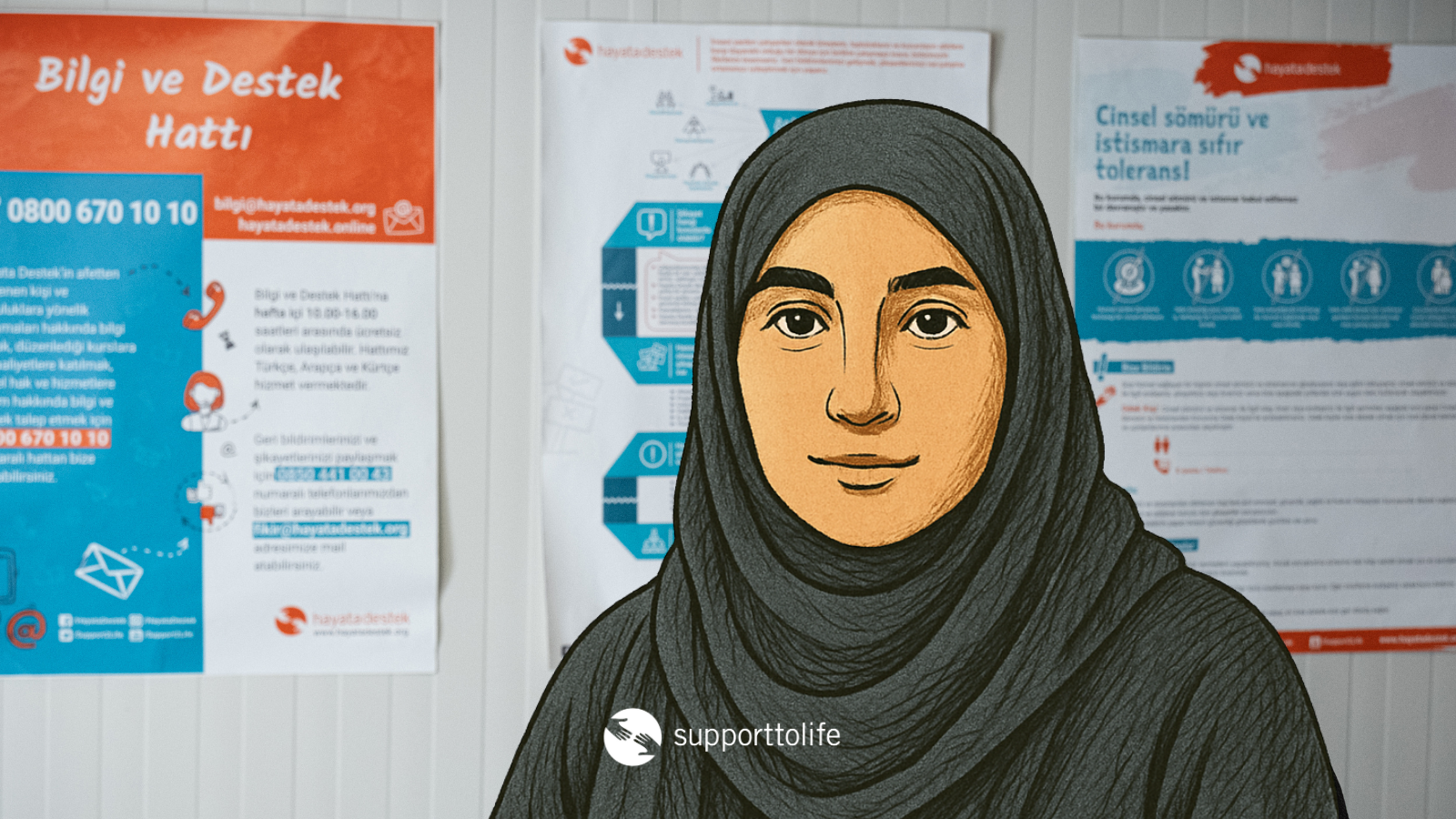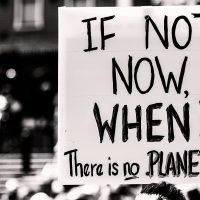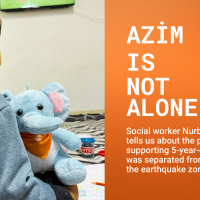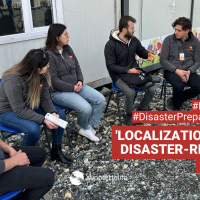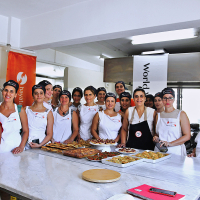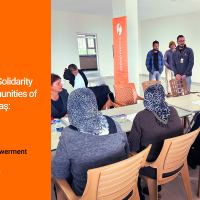Hafza, who was supported by Support to Life (STL) Adıyaman team in combating gender-based violence, says, "Actually, we encounter a lot of such things in the temporary shelter center, but people are afraid to complain, but mine set an example for others."
Adıyaman, with a population of around 620,000, is one of the provinces heavily affected by the February 6 Earthquake. In the two years since the earthquake, the number of temporary shelters has decreased and those affected have moved to container cities and buildings, some of which are damaged. Like many cities in disaster zones, much remains to be done to restore Adıyaman to its pre-earthquake condition.
As the implementing partner of our strategic partner Diakonie Katastrophenhilfe, in our project funded by the European Union (EU) we aim to provide basic needs in the earthquake zone, for almost two years. This year, supporting gender equality and preventing violence is one of our focal points in the project, which we shape according to changing needs. Ece Yıldız, a social worker from the Support to Life team in Adıyaman, explains why:
"After the earthquake, we observed an increase in gender-based violence in the disaster area. In this context, we develop safety and security plans for survivors or those at risk of violence. We ensure that beneficiaires have access to complaint mechanisms, legal and psychological services."
Thanks to EU funding, between May 1, 2024 and March 31, 2025, we provided support in 732 different areas to 185 women who have been subjected to gender-based violence or are at risk of gender-based violence. This support includes creating a safety plan, judicial support in processes such as custody and divorce, support in obtaining a protection order and filing a complaint in case of exposure to violence, as well as psychological support or cash assistance for survivors.
One of the beneficiaires we supported to access complaint mechanisms is Hafza *. Hafza, who came to Adıyaman as a single parent with her children from Idlib in 2012, lived in a temporary shelter center for 6 years. Then the house they moved to was damaged in the earthquake and they started living in a camp again. Today, they live in a temporary shelter for refugees.
Participating in the information sessions we organized in the temporary shelter, Hafza started to invite her acquaintances to these sessions as she was known and trusted in her circle and became a community volunteer of our association. And one day she contacted us about the threat of violence against her daughter and herself.
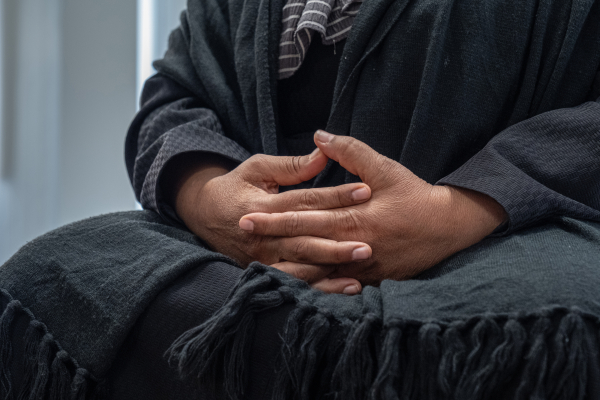 "I LEARNED THE LAWS IN TÜRKİYE"
"I LEARNED THE LAWS IN TÜRKİYE"
"A boy wanted to marry my 20-year-old daughter, we trusted him because we knew the family, we accepted, but we realized that the boy was not a decent person. When we wanted to break off the engagement, the threats started," says Hafza. The person to whom they gave her daughter's broken cell phone for repair started taking all the family photos on the cell phone, threatening to send these photos to everyone with disturbing statements, blackmailing her and demanding money. She says that she attended “Support to Life”'s sessions on rights against violence, but she was afraid to report the perpetrator. This is because there is misinformation, especially among the refugee community, that if a refugee reports someone, they will be sent back to Syria. "In your sessions I learned about the laws in Türkiye," says Hafza.
We informed Hafza that she could file a complaint within the scope of 'Law No. 6284 on the Protection of the Family and Prevention of Violence against Women' if she was in danger of being subjected to violence, and that we would support her in the process. We provided translation support for the complaint filed with the gendarmerie; a complaint was filed on charges of blackmail and insult.
The trial process has begun. Hafza said that the perpetrator stopped threatening her after she filed a complaint and added, "Actually, we encounter such things a lot at the temporary shelter center, but people are afraid to file a complaint, but my complaint set an example for others."
BUILDING A RELATIONSHIP OF TRUST
Providing sustainable humanitarian assistance in a disaster zone is important because those affected by the earthquake have not only short and immediate needs, but also medium and long-term needs. Hafza summarizes this point as follows:
"Associations come to the temporary shelter center but then they leave. Support to Life supported us in psychological protection, hygiene services, cash support. They informed us about violence, we learned about the KADES application. We have established such good relations that we know the names of the association's staff. Support to Life's sessions are very crowded because people trust the association."
While working to ensure that no one is left behind and that everyone has equal access to their rights, perhaps the most important thing is to establish a relationship of trust. We aim to maintain this relationship of trust in all our work, including in disaster areas.
*The name of the consultant has been changed to protect his/her personal rights.
Gözde Kazaz / Communications Expert
Thank you for reading the article and for coming this far. Now you can support life while you are here.
